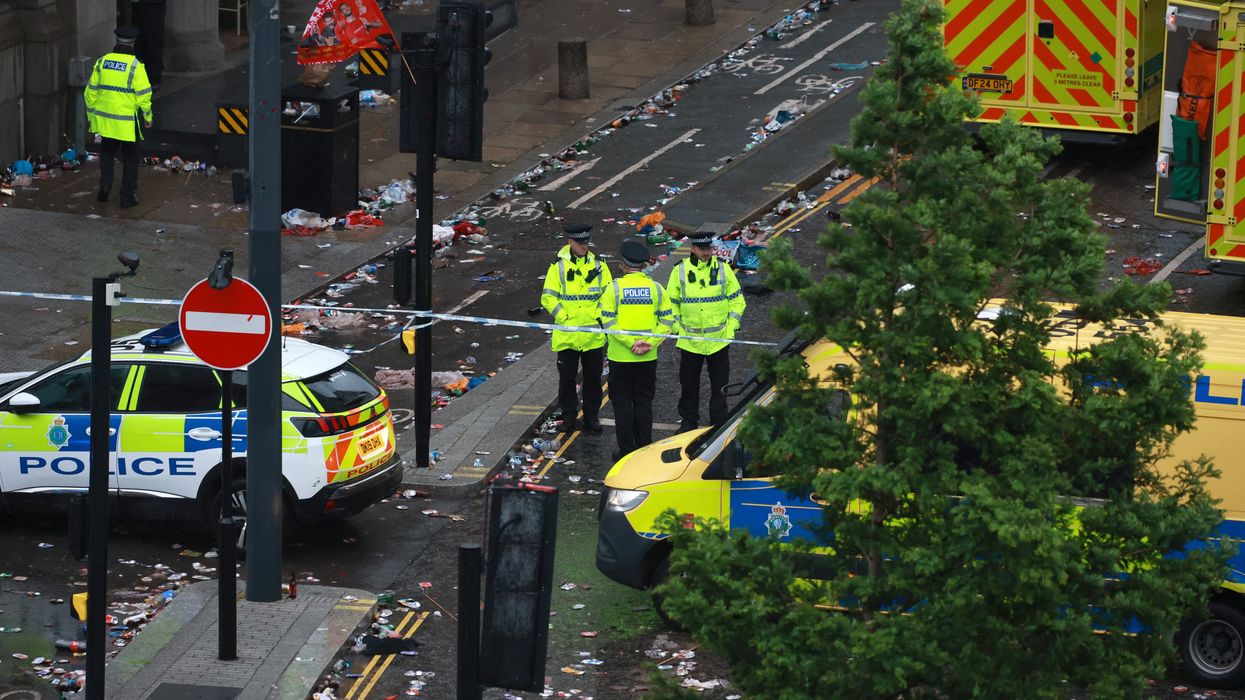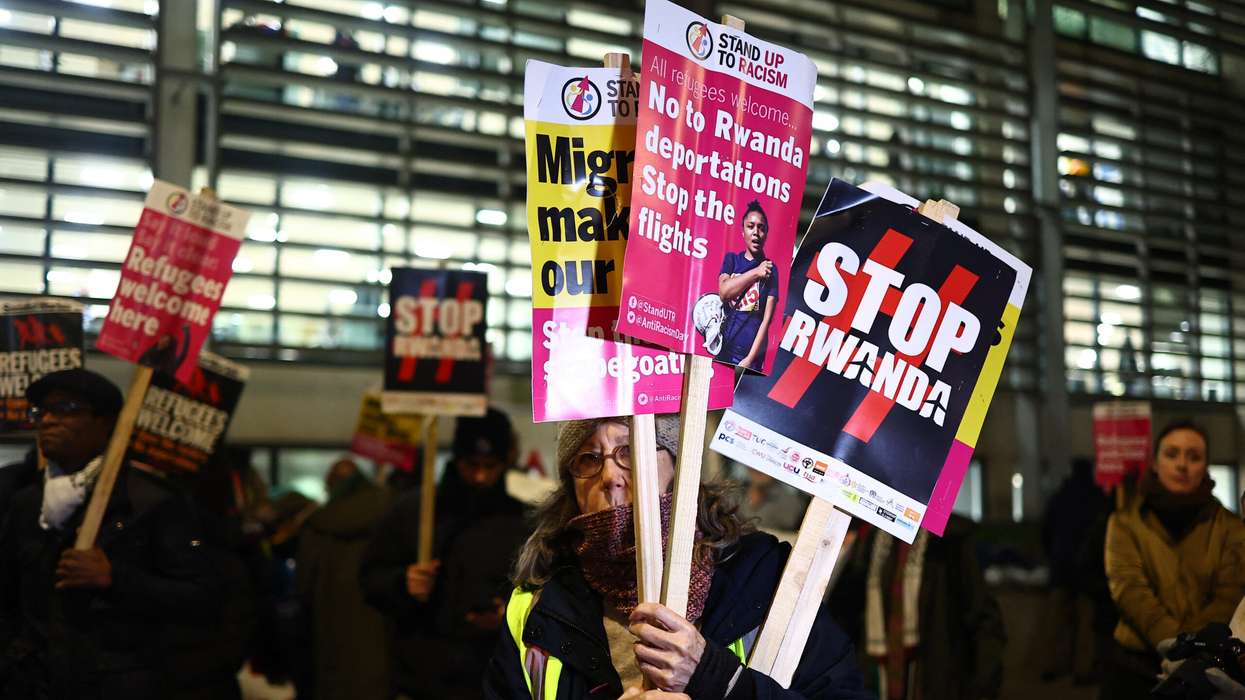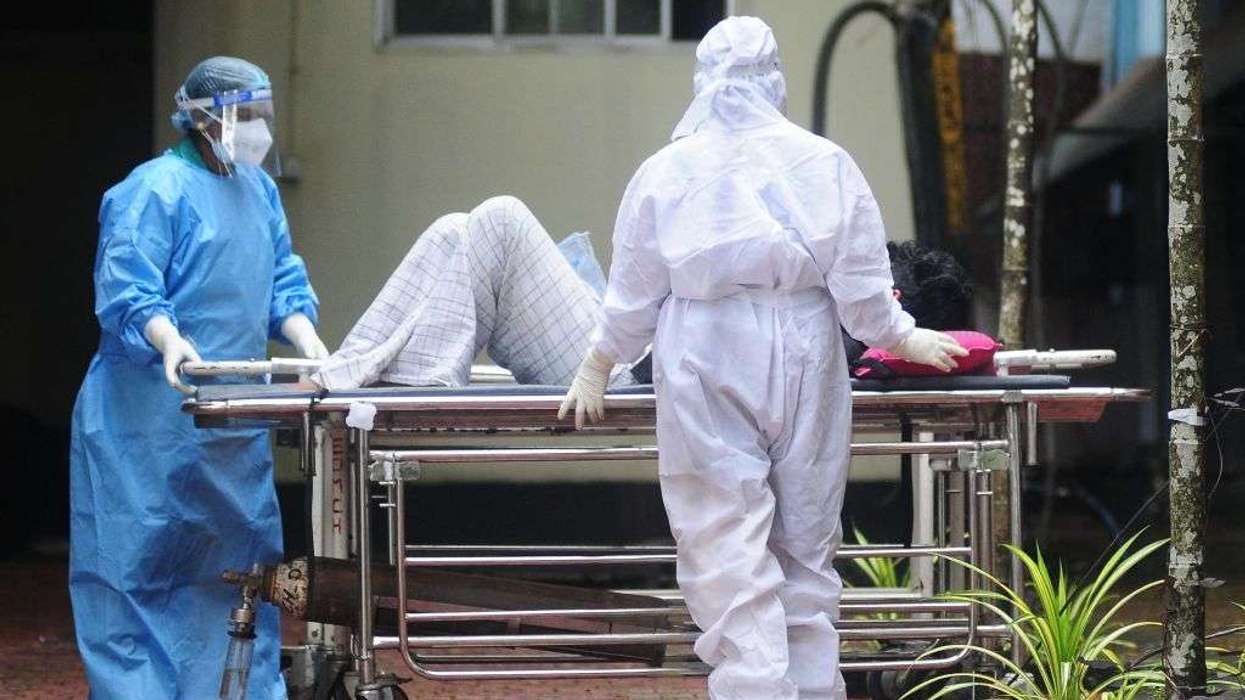A CAR drove into a crowd of Liverpool fans on Monday night during the club’s Premier League title parade, injuring nearly 50 people and hospitalising 27, including four children, according to police and officials.
Merseyside Police said the incident was not being treated as terrorism. A 53-year-old white British man from the Liverpool area was arrested and is believed to have been the driver.
“We believe this to be an isolated incident, and we are not currently looking for anyone else in relation to it,” said Assistant Chief Constable Jenny Sims. “The incident is not being treated as terrorism,” she added.
The collision happened minutes after Liverpool players had passed nearby on an open-topped bus celebrating their record-equalling 20th English league title. The British Broadcasting Corporation reported that the crash occurred about 10 minutes after the team’s bus had passed by.
“We are hoping of course that they pull through,” said Steve Rotheram, mayor of the Liverpool City Region, about the four people who were “very, very ill in hospital.”
Liverpool City Council leader Liam Robinson said on social media the incident “cast a very dark shadow over what had been a joyous day.”
Twenty people were treated at the scene. Firefighters had to release four people, including a child, who were trapped under the car, said Nick Searle, Merseyside Fire and Rescue Service chief fire officer. Ambulance officials said one child and one adult were seriously injured.
An eyewitness who gave her name as Chelsea told BBC Radio that people were only alerted to the danger by screams from the crowd. “With the commotion, that was the only reason we looked up, and thankfully, looked up and managed to jump out (of) the way in time,” she said.
Harry Rashid, 48, from Solihull, who was at the parade with his family, said, “Initially we just heard the pop, pop, pop of people just being knocked off the bonnet of the car. It was horrible and you could hear the bumps as he was going over the people.”
Dal Babu, a former chief superintendent in London’s Metropolitan Police, told the BBC that police gave a quick description of the arrested man to stop speculation on social media that the crash was an Islamist attack.
Videos on social media showed people being thrown into the air as the car moved through the crowd. When the vehicle stopped, fans broke the back windows as police officers held them back.
Prime Minister Keir Starmer said, “My thoughts are with all those injured or affected.” He called the scenes “appalling” and added, “the whole country stands with Liverpool.” He also commended the “remarkable bravery shown by the police and other emergency services. They are supporting and caring for those injured in these terrible events,” he said in a statement.
Liverpool FC posted on X, “Our thoughts and prayers are with those who have been affected by this serious incident,” adding they were working with Merseyside Police. Everton, Liverpool’s Merseyside rivals, said their “thoughts are with all those who have been affected by this serious incident in our city.”
The morning newspapers carried images from the incident. “Horror at Liverpool parade,” read The Sun, while the Daily Mail described it as “Carnage at parade.”
A Reuters photographer at the scene saw emergency services carrying victims on stretchers to ambulances and debris scattered on the road. A Reuters witness also reported disorder in the city centre, with confusion about street closures and overcrowding before the incident.
Liverpool’s football history has been marked by tragedy. In 1989, 97 fans died in a crush at Hillsborough Stadium in Sheffield. In 1985, 39 mainly Italian fans died when a wall collapsed during disturbances between Liverpool and Juventus fans at Heysel Stadium in Brussels.
Liverpool last won the Premier League trophy during the Covid pandemic, when celebrations were not permitted due to lockdowns.
(With inputs from agencies)





